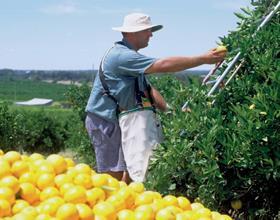
Australia has secured a new horticulture trade deal with the Philippines.
The Philippines had previously not accepted imports of Australian produce due to concerns over fruit fly.
The agreement between the two countries follows successful in-transit cold sterilisation trials, which proved effective at killing fruit fly during transportation of produce.
Andrew Harty of Citrus Australia says a substantial amount of research went into these trials over the past ten years and applauded the Filipino government for its prompt recognition of the successful trials and approval of imported produce from Australia.
“With other countries, it’s taken up to ten years,” he said.
The Philippines is an important market for Australia's small fruit or less aesthetically appealing fruit that is still good quality for consumption.
Once trade commences and gains momentum, industry experts estimate that the Philippines could provide a market for between 10,000 and 15,000 tonnes of fruit exports annually.
Harty believes the agreement has been reached at an ideal time for citrus growers.
“Growers and exporters will be going to `Philippines capital city` Manila and will be starting to set up deals there in good time for the start of our export season, which for mandarins will start in May, and for navel oranges will start in mid-to-late June,” he said.
The deal is particularly advantageous to Australian citrus growers as, at present, Australia is the only country to be allowed to ship fruit that has been de-infested in-transit.
“Being the first country to be granted approval to conduct in-transit cold disinfestation for fruit flies will place us in a strong position against other southern hemisphere producers to capture a significant market share,” Harty explained. “This could eventuate to around 10 per cent of our entire orange export volume.”
Both Harty and Senator Joe Ludwig, the Australian minister for agriculture, forestry and fisheries, emphasised the benefits of the new shipping method for preserving the quality of the fruit, reducing costs and increasing exports.
“New, more effective, cold treatment schedules will ensure that product arrives at this important market in a much better condition,” Ludwig said. “Improvements and flexibility agreed to by both countries will help reduce the cost of exporting product to the Philippines and facilitate increased fruit exports.”



